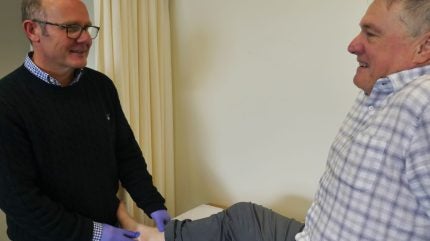
The Barwon Health Infectious Diseases Unit has launched a new clinical trial to evaluate the new antibiotic, Telacebec, in treating Buruli Ulcer, a skin disease caused by Mycobacterium ulcerans.
This study is supported by the World Health Organization.

Discover B2B Marketing That Performs
Combine business intelligence and editorial excellence to reach engaged professionals across 36 leading media platforms.
It will assess the effectiveness of the new antibiotic to treat Buruli Ulcer as a shorter treatment option of two to four weeks.
In the trial, Telacebec will be analysed for safety and tolerability as an option needing fewer healing times for BU lesions.
The disease causes severe skin damage as well as psychological distress and financial burden for patients and communities.
Buruli Ulcer leads to the destruction of skin cells, small blood vessels, and subcutaneous fat, resulting in ulceration and skin loss.

US Tariffs are shifting - will you react or anticipate?
Don’t let policy changes catch you off guard. Stay proactive with real-time data and expert analysis.
By GlobalDataThe condition is claimed to be becoming more prevalent in areas such as Geelong, the Bellarine Peninsula, and the Surf Coast.
Queenscliff local Geoffrey Mutton has been grappling with the disease since May.
Despite receiving the standard treatment, he has encountered adverse reactions, including liver complications and negative interactions with his other medications.
Additionally, his recovery is said to be protracted, with his wounds requiring many months to heal.
Barwon Health Infectious Disease department director Daniel O’Brien said: “Most Buruli Ulcers currently require up to eight weeks of treatment with a combination of dual antibiotic therapy. Current antibiotic treatment is long, requires two different antibiotics, has a high incidence of side effects, and may cause serious interactions with people’s other medications.
“Through this clinical trial, which is supported by the World Health Organisation, the aim is for Buruli Ulcer treatment to be significantly shorter (reduced to 2-4 weeks), require only one antibiotic, be safer and more tolerable.
“It is hoped through our study that the use of Telacebec treatment will become the world recognised standard treatment for Buruli ulcer, and also lead to improvements in treatment for tuberculosis and leprosy.”





